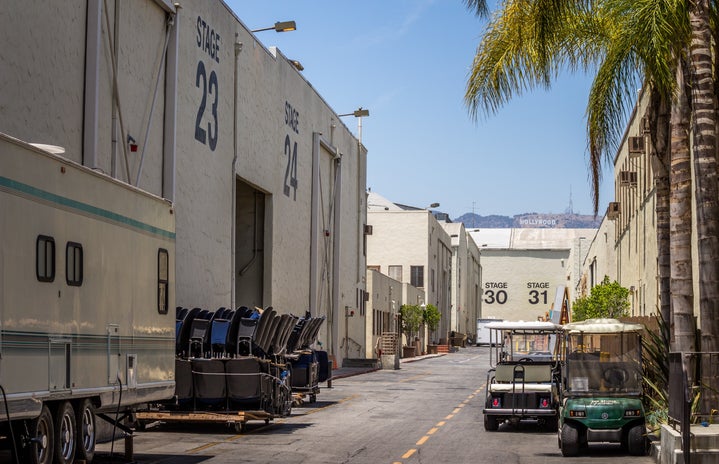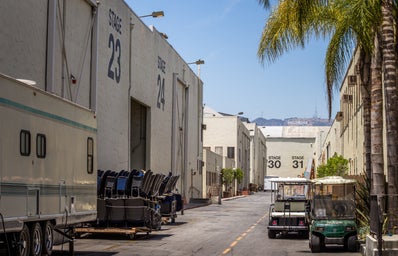*Please note that this article does contain spoilers for the film*
Biopics aren’t necessarily reliable sources of information. They over-dramatize a person’s life. But that’s how Hollywood works: if you want something to be interesting, you have to stretch the truth a little. So for someone who has loved Queen her entire life—they’re the only reason I listen to music at all—it was a little hard to watch Bohemian Rhapsody, the 2018 biographical film about Freddie Mercury. I knew a lot of people had come to see it for different reasons—it had good reviews, Rami Malek (the guy from Mr. Robot) was in it, a friend forced them to go (sorry not sorry, Alex)—so I was scared they’d get the wrong idea. If Freddie wasn’t Freddie, would they ever know Queen the way I did?
Well, they’d certainly know the music.
The movie starts at its end: Freddie walks onstage, “Somebody To Love” plays behind him; Queen is about to do the Live Aid charity concert. There’s no mention of his disease (he dies of AIDs complications six years later), his sexuality, or anything that seemed to define him in the tabloids. There isn’t even any dialogue. Freddie is what he’s meant to be: a performer. And though it’s clear from the beginning that the film’s not entirely accurate (take Freddie’s impromptu band audition for example), that idea stays consistent, as does the rest of Queen’s love for what they do. We get to see Smile, the band before it was Queen. We watch Roger Taylor break his vocal cords screaming “Galileo!” at the top of his lungs, making up the operatics that become “Bohemian Rhapsody”. We see Brian May and the rest of the band stomp on the ground, immortalizing the beat we know from “We Will Rock You”. We hear John Deacon plucking the beginnings of “Another One Bites the Dust” on his bass. And let’s not forget Mr. Fahrenheit himself, who Rami Malek absolutely nails, dancing up and down the stage holding his mic stand like a goddamn lollipop.
But while they do the music justice, and somehow even manage to cast cats (Freddie had ten!), I think the most problematic part of Bohemian Rhapsody is its exploration of Mercury’s bisexuality. It’s hard to ignore the fact that homosexuality almost seems to be the villain of the film, especially in its portrayal of Freddie’s personal manager, Paul Prenter. In the movie, Freddie meets Prenter while the band records A Night at the Opera, Queen’s magnum opus. Prenter is initially the person who introduces him to his sexuality, kissing Freddie while he’s writing “Love of My Life”, a song dedicated to his fiancée, Mary Austin. Slowly but surely, Freddie’s romantic relationship with Mary falls apart, and she leaves him when he tells her he’s bisexual.
“I knew it,” She says to him, “I knew you were gay.”
And she did say that. That’s what happened. And we can forgive her because it was the seventies. But what we shouldn’t forgive is the way the movie seems fixated on their heterosexual relationship, rather than letting Freddie explore his own sexuality in a positive way.
Their break up is the movie’s first turning point, and what leads us into the 80s. Freddie has a moustache and seems to hate shirt sleeves. He looks almost identical – as guitarist Brian May points out – to Paul, who the rest of the band call his “twin”. He starts taking over Freddie’s life; he never leaves him alone in the recording studio, eventually has him fire the band’s manager John Reid, and embark on a solo career, “breaking up the band”. And here’s where it’s dramatized because it didn’t break up the band. In real life, they only ever took breaks from touring, but they still worked on albums. And Freddie’s choice to go solo wasn’t the “betrayal” the film made it out to be. Drummer Roger Taylor had two solo albums before Freddie released Mr. Bad Guy in 1985. Queen was still on good terms before Live Aid, so what was Bohemian Rhapsody trying to do?
The film wants to make Prenter some kind of Yoko Ono, and in doing so they accidentally demonize the man who makes Freddie “gay” in the first place. Mary, ex-fiancée and now Freddie’s best friend, is the only one who can snap him out of whatever trance Paul’s holding him in. She comes to the rescue while Freddie’s recording a second solo album in Germany, and convinces him to come home. Freddie fires Paul—who outs Mercury’s sexuality to the press—rejoins the band, and plays the Live Aid charity concert, but not before discovering he’s contracted AIDs. It’s the only thing this film’s straight heroine can’t save him from, and it’s what Freddie has to pay for being gay.
Jim Hutton, a server Freddie hires for a party mid-film, is awkwardly reintroduced at the end as Freddie’s last lover, and his “positive” portrayal seems to be a desperate attempt to save the movie from its homophobic fate. But it doesn’t, not really because Freddie never really accepts who he is. He isn’t bisexual, he doesn’t have a disease, he isn’t really even a person. He’s a performer. He’s Freddie Mercury, and that’s nothing but a stage name.
Bohemian Rhapsody gets 10/10 cats, 1/another 1 Bites the Dust and 6.5/10 stars.



